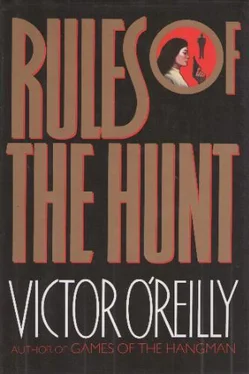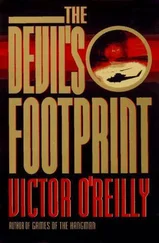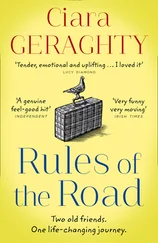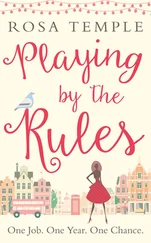Victor O'Reilly - Rules of The Hunt
Здесь есть возможность читать онлайн «Victor O'Reilly - Rules of The Hunt» весь текст электронной книги совершенно бесплатно (целиком полную версию без сокращений). В некоторых случаях можно слушать аудио, скачать через торрент в формате fb2 и присутствует краткое содержание. Жанр: Триллер, на английском языке. Описание произведения, (предисловие) а так же отзывы посетителей доступны на портале библиотеки ЛибКат.
- Название:Rules of The Hunt
- Автор:
- Жанр:
- Год:неизвестен
- ISBN:нет данных
- Рейтинг книги:4 / 5. Голосов: 1
-
Избранное:Добавить в избранное
- Отзывы:
-
Ваша оценка:
- 80
- 1
- 2
- 3
- 4
- 5
Rules of The Hunt: краткое содержание, описание и аннотация
Предлагаем к чтению аннотацию, описание, краткое содержание или предисловие (зависит от того, что написал сам автор книги «Rules of The Hunt»). Если вы не нашли необходимую информацию о книге — напишите в комментариях, мы постараемся отыскать её.
Rules of The Hunt — читать онлайн бесплатно полную книгу (весь текст) целиком
Ниже представлен текст книги, разбитый по страницам. Система сохранения места последней прочитанной страницы, позволяет с удобством читать онлайн бесплатно книгу «Rules of The Hunt», без необходимости каждый раз заново искать на чём Вы остановились. Поставьте закладку, и сможете в любой момент перейти на страницу, на которой закончили чтение.
Интервал:
Закладка:
Japanese politics, as the prewar assassinations and other excesses showed, were never exactly squeaky clean, but the contamination of Japan's new and fragile post-war democratic system by institutionalized bribery could be traced directly to the CIA. The same thing was happening in France and Italy and in many other countries.
Communism was checked, but at a high price. Organized crime received a major cash injection and direct links with the political establishment. And links with the politicians meant protection.
In such an environment, Hodama, the kuromaku, thrived.
Adachi opened his eyes. Chifune had stopped speaking and was reaching behind her head, her breasts uplifted by the gesture. Her hair, glowing richly in the candlelight, came tumbling down. Then she leaned forward to kiss him, and he put his arms around her and held her and caressed her while they kissed.
Connemara Regiona lHospital
January 2
There was no time to bring in a rescue helicopter, so Kilmara had decided to use the aircraft in which the terrorists had arrived.
There was no margin for any other decision. The Rangers had done the best they could, but it was not enough. Fitzduane had been too seriously wounded. He was losing ground.
Kilmara made the reasonable deduction that a machine meant to be used in such a covert mission would be fully fueled, and the tank would probably have been topped up when they had landed on the island.
So it proved. One of the Delta men was Unit 160 trained. He could fly low and fast and land on a dime. Unfortunately, he had no idea of the local geography or Irish radio procedures. Anyway, thought Kilmara privately, his Georgia drawl would be practically unintelligible to the locals. Sergeant Hannigan went with him to monitor the injured, navigate and act as an interpreter.
Flying low was vital. Fitzduane had a punctured lung. The higher he flew, the thinner the air, the greater the pressure put on his lung as he struggled to breathe – and the greater the risk of his lung collapsing.
To the Delta warrant officer, trained in contour flying, low meant low. It was the most hair-raising and exhilarating flight of his Ranger comrade's life. Unfortunately, Hannigan was able to enjoy little of it. Seatless, he had to work from a kneeling position. The noise and vibration of the helicopter meant vigilant observation of the injured passenger's essential signs. He took blood pressure and pulse repeatedly, monitored airways occasionally, fought to keep the drips in place in the exposed interior.
By the time the helicopter arrived at ConnemaraRegionalHospital, Hannigan was of the opinion that on the balance of probability, Fitzduane was going to die.
The helicopter trip took thirty minutes. It was now forty-five minutes since the shooting.
Mike Gilmartin, the casualty consultant, had been briefed ahead by radio, and made his own diagnosis now while his team went to work.
The consultant anesthetist, Linda Foley, checked the airway for obstructions. Clearly, he could not breathe adequately for himself. "Bag him," she said. An oxygen venting mask was attached and connected to an Ambu-bag, and an anesthetic nurse began manually compressing the bag, forcing oxygen into the patient.
The patient was waxy white and his skin was clammy and cold to the touch. He was struggling and bewildered, straw-colored serous fluid leaking from his wounds, his clothing saturated in clotting blood. Closer examination showed his breathing to be thirty-five gasping breaths per minute and his blood pressure to be over eighty and unrecordable. His pulse showed one-forty beats per minute.
Fitzduane was showing a basic animal response to severe injury. Unbidden by his conscious mind, he was cutting of the blood supply to the less important areas and preserving the blood supply to his brain so that his body could fight back.
Gilmartin percussed Fitzduane's chest, and hearing the dull sound, immediately ordered a chest drain. Quickly, he injected a local anesthetic, and without waiting for the three to five minutes it took for the drug to fully effective, made an incision in the muscles over the lower end of the fifth rib space and opened up the muscle with a forceps.
It was not enough. He inserted his surgical-gloved finger to open the wound up more, then replaced it with a forty-centimeter-long plastic tube.
Blood, a mixture of bright-red arterial and bluish venous, rushed out in a bubbly, dirty-red stream through an underwater seal and into a container on the floor. A second tube protruded from the container and released the air that was escaping from Fitzduane's lung. Half a liter of blood came out in the first two minutes.
Oblivious to his surroundings, semiconscious, confused, and terrified, Fitzduane was struggling. The anesthetist and her staff watched with concern and quickly moved to tape down the cannulas. It was all too easy for them to dislodge from the veins and go into tissue.
Gilmartin exposed the wounded leg and applied a fresh pressure dressing, while a nurse applied a direct manual pressure. The leg was unnaturally white, a sign that the femoral artery and vein were damaged. Further, the patient had clearly sustained a multiple fracture.
"What a bloody mess," he said. "Let's prep him for the theater."
The preparations continued. Fitzduane's blood pressure slowly improved to ninety to one hundred systolic and his heart rate had slowed to a hundred beats per minute.
He was now adequately resuscitated for surgery.
Thirty minutes had passed since his arrival at the hospital. It had been one hour and fifteen minutes since the shooting.
He was wheeled into the operating theater.
4
Tokyo, Japan
January 3
Chifune left sometime around dawn.
Adachi had opened one eye as she touched her lips to his but had not protested. She had never yet stayed a full night with him and refused to explain why, and what was just the way of it. In time things might change. Meanwhile, murder and kendo and lengthy lovemaking were exhausting. He drifted back to sleep.
He awoke officially when the alarm clock shrieked. The Japanese electronics industry was a great believer in innovation, and this ridiculous thing, which was a clock in the form of a parrot, had been bought for him one Sunday when they had been browsing around Akihabara. It looked horrible, the digital clock face that peered out of its stomach was obscene and sounded revolting, but it did wake him up and it had some sentimental value. Nonetheless, he was determined to shoot it one of these days. Which reminded him. Where was his gun?
He went hunting and found it under his socks. It was a. 38 Nambu Model 60 with a five-chamber cylinder. It was not exactly state of the art compared to American personal firepower, but in peaceful Japan it looked like overkill. He buckled on the damn thing, and two speedloaders to balance out the weight, with regret. Orders were orders.
The thought came to him that the vast majority of Japanese had never handled a gun. Neither would Adachi if he had any choice in the matter, but weapons were not an option, even in the Japanese Defense Forces.
Adachi had had a good time in the paratroops but had never seriously associated the military life with the need to kill anyone. He just enjoyed the camaraderie and jumping out of airplanes. He regarded infantry badges and Purple Hearts that he had met at Atsugi during training. He just could not imagine deliberately killing another human being.
Adachi slurped a bowl of herb tea and ate some rice, a few pickles, and a little grilled fish. He bowed toward the ancestral shrine he kept in a niche of the living room and headed for the subway. He had looked a little hollow-eyed when he checked himself in the mirror earlier, but apart from a certain understandable fatigue – he had slept only about three hours – he felt great.
Читать дальшеИнтервал:
Закладка:
Похожие книги на «Rules of The Hunt»
Представляем Вашему вниманию похожие книги на «Rules of The Hunt» списком для выбора. Мы отобрали схожую по названию и смыслу литературу в надежде предоставить читателям больше вариантов отыскать новые, интересные, ещё непрочитанные произведения.
Обсуждение, отзывы о книге «Rules of The Hunt» и просто собственные мнения читателей. Оставьте ваши комментарии, напишите, что Вы думаете о произведении, его смысле или главных героях. Укажите что конкретно понравилось, а что нет, и почему Вы так считаете.




![Беар Гриллс - The Hunt [=The Devil's Sanctuary]](/books/428447/bear-grills-the-hunt-the-devil-s-sanctuary-thumb.webp)







